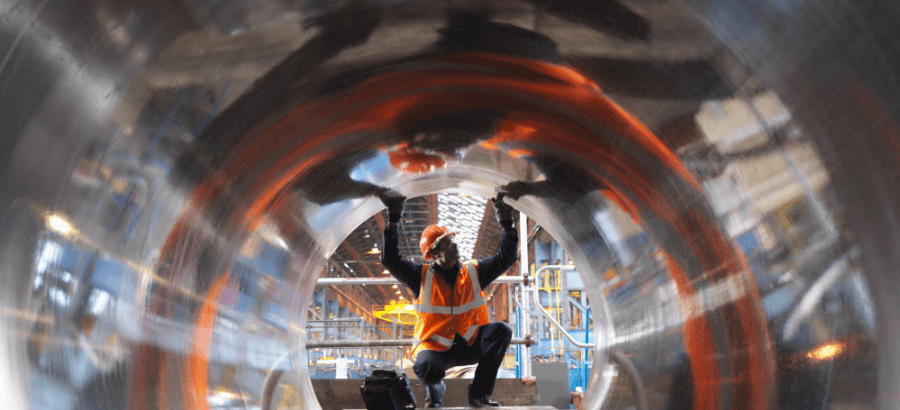During the pandemic, many industry players were caught off guard by inefficient business systems and manual processes. As workforces are being transformed, many manufacturers and distributors have started to see the true benefits of process automation. Businesses have realized that the digital toolkit available to them has grown and they can consider technology-centered solutions. In fact, our recent CFO 4.0 survey showed this, where 44% of businesses singled out warehouse and advanced manufacturing process automation as a key focus area moving forward.
Manufacturing has always been about automation – periodically there has been a new wave that adds to or increases the degree of automation. So what has changed now? The answer is that the impact of technology in manufacturing had been growing, but the COVID pandemic pushed it over the tipping point. Technology has now enabled manufacturing facilities to be far more integrated using the cloud as the vehicle for this inter-connectedness. Simply put, as the global landscape continues to change at a rapid pace, automation will continue to be a necessity to increase efficiency, improve productivity, reduce costs and contrary to popular belief, create jobs.
- Increased efficiency in the supply chain
Automation has the benefit of not only removing repetitive functions, but also allows jobs to be completed more effectively and efficiently. It can take over monotonous tasks, such as manual capture of shipping data or scheduling of production jobs. Additionally, plugging AI into ERP systems can reduce inaccuracies often felt throughout the supply chain, translating into better outputs for the whole business process.
Automation plays a crucial role in the digital transformation journey for manufacturers, enhancing their business environment for the better while improving supply chain management. Using automation with hardware like scanners as the system input device warehouse management and ERP can efficiently monitor stock levels. This provides real-time inventory data that, when integrated with manufacturing systems, can make the factory floor operate more efficiently.
- Improving productivity and faster time to value
Automating the production process is the most significant way of producing products at an optimum level. By automating those processes, the major tasks of procurement, fabrication and assembly, testing, packaging and distribution can be improved and made more efficient.
By leveraging ERP systems’ automation capabilities, automated operations are known to perform tasks more efficiently than manual operations, not to mention, increase the rate of production.
- Reduction of costs and expenditure
By investing in an ERP system and automating processes, manufacturers can look at adopting manufacturing principles to reduce manufacturing costs – by increasing productivity, cutting production through-put times, reducing inventories, and cutting errors and scrap.
- Job Creation
Research shows that digital transformation and Industry 4.0 is expected to deliver between $1.2 trillion and $3.7 trillion in gains in coming years. As the manufacturing industry evolves, new disciplines will require new skills. The industry needs to position itself for the future by upskilling or reskilling workers for tomorrow’s jobs. How? By taking advantage of resources that are readily available.
The reality is that automation is here to stay, and it presents opportunities for forward-thinking manufacturers to capitalize on while diversifying products and increasing productivity.
Enabling manufacturing and business process automation with industry-built solutions, such as an ERP system designed for manufacturing and distribution sectors, business can be streamlined by providing an end-to-end solution for optimized cost control and enhanced business performance, positively positioning the industry for the next generation of manufacturing.








2 thoughts on “How Automation Can Activate Your Digital Transformation Journey”
Thank you for such an informative article! cannot imagine how businesses will survive without the help of automation system these days! keep up the good work!
Very insightful article. The advent of the post-pandemic digital era has ushered in a new way of doing business. Digital Automation solutions help integrate data from any source, eliminate costly manual processes and input errors, and reduce the time-to-market of new products, thus improving customer experience and delivering faster ROI.